Planetary Science
-
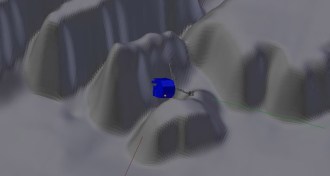 Planetary Science
Planetary ScienceGrazing crater rim may have saved comet lander
Bumping off the rim of a crater probably saved the robotic comet Philae from a cold, dark death, a new analysis of images suggests.
-
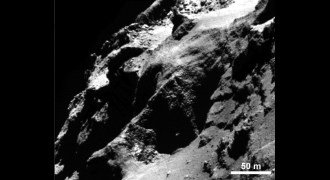 Planetary Science
Planetary ScienceRosetta may have spotted comet’s primordial ingredients
Photos taken by the Rosetta spacecraft may show pristine material that formed the solar system’s comets, asteroids and planets roughly 4.6 billion years ago.
By Andrew Grant -
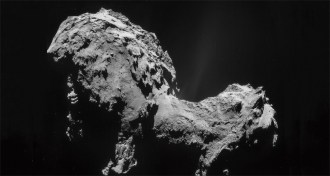 Planetary Science
Planetary ScienceYear in review: Rosetta mission hits its target
The Rosetta spacecraft and its lander Philae are providing an intimate look at the life of comet 67P/Churyumov-Gerasimenko.
-
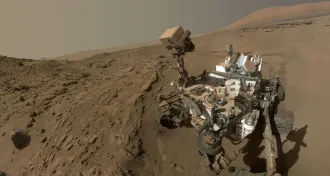 Planetary Science
Planetary ScienceRover finds methane in Mars air, organics in rocks
NASA’s Curiosity rover has found organic molecules on Mars, but scientists can’t say whether they are a sign of life on the Red Planet.
By Erin Wayman -
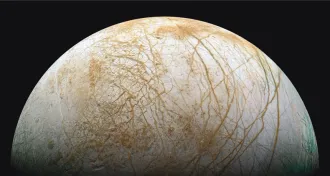 Planetary Science
Planetary ScienceYear in review: Tectonics active on Europa
Jupiter’s frozen moon Europa has a shifting exterior analogous to Earth’s plate tectonics.
-
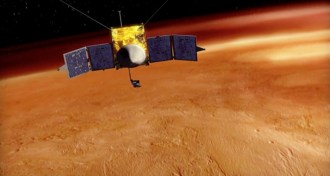 Planetary Science
Planetary ScienceSolar wind probably leaches Mars’ lower atmosphere
Initial results from NASA's MAVEN probe may help explain how Mars has lost its atmosphere: The solar wind penetrates the Red Planet’s atmosphere and fuels escaping gas.
-
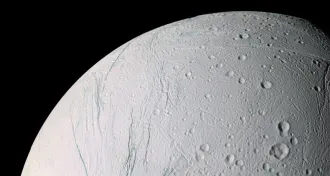 Planetary Science
Planetary ScienceYear in review: Ocean may power Enceladus’ geysers
NASA’s Cassini spacecraft builds a stronger case for a subsurface ocean on Enceladus that drives ice geysers on the moon’s south pole.
-
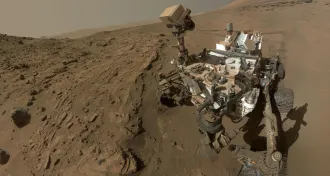 Planetary Science
Planetary ScienceYear in review: Business booming on Mars
Mars now has seven robots studying it and together they have given scientists their best view of any planet in the solar system other than Earth.
-
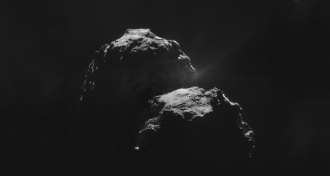 Planetary Science
Planetary ScienceRosetta casts doubt on comets as Earth’s water providers
Water in comet 67P’s thin, hazy atmosphere doesn’t chemically match Earth’s oceans, suggesting that asteroids, not comets, brought water to the planet.
-
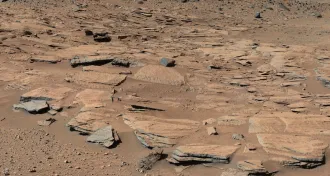 Planetary Science
Planetary ScienceMartian crater was once filled with liquid water
Sandstone deposits on Mars indicate that Gale Crater, the Curiosity rover’s stomping ground, was once a lake fed by rivers.
-
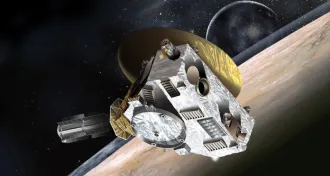 Planetary Science
Planetary SciencePluto probe wakes up one last time
The New Horizons probe will remain active for the remainder of its journey to Pluto.
-
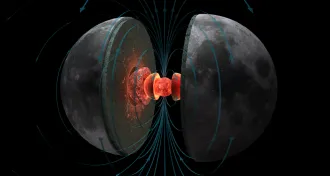 Planetary Science
Planetary ScienceAncient moon’s mega magnetic field explained
Apollo-era moon rocks reveal ancient lunar magnetic field was at least as powerful as the one surrounding modern Earth.